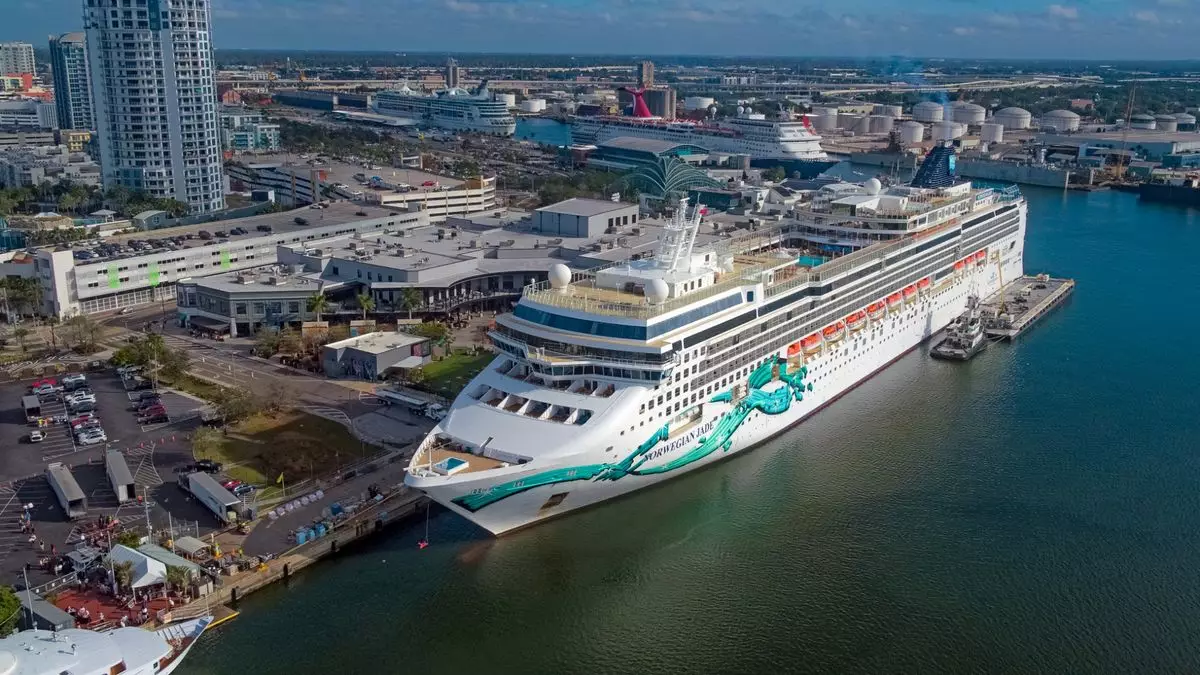As Hurricane Milton barrels toward the Caribbean, cruise lines are swiftly altering their itineraries to ensure the safety of their passengers and crew. The nature of such unexpected shifts reveals not only the logistical challenges faced by these companies but also highlights a broader theme—cruise lines must remain dynamic in the face of changing weather patterns, underscoring the importance of flexibility when planning oceanic voyages.
Meteorologists predict that Hurricane Milton is likely to escalate to a Category 5 storm by the time it makes landfall on the west coast of Florida. The hurricane is anticipated to hit late Wednesday, creating turmoil across parts of the state before moving into the Atlantic and ultimately threatening Bermuda. Consequently, as the hurricane approaches, various cruise lines have preemptively modified their travel plans. This not only ensures the safety of guests and crew but also reflects the cruise industry’s ability to adapt to real-time developments.
In preparation for Hurricane Milton, Tampa International Airport is slated to close on Tuesday, a move indicative of the severity of the storm’s predicted impact. Such decisions are part of a broader preemptive approach as authorities prioritize safety above all else. Air travel disruptions can significantly affect cruise embarkation, with potential cascading effects on passenger itineraries. This emphasizes the interconnected nature of different travel modes and how disruptions can lead to far-reaching consequences within the tourism sector.
With the storm impacting multiple cruise lines, various adjustments to itineraries have been made. The Carnival Pride, for instance, is opting to reach Bermuda a day earlier than initially planned while still allowing for a three-day stay. Such nimble decision-making reflects the cruise line’s commitment to maintaining travel experiences while navigating the chaotic reality of hurricane season.
Other vessels, such as the Grandeur of the Seas, have pivoted from the Western Caribbean toward the Eastern Caribbean. This ship will now be calling at Nassau instead of the originally scheduled Costa Maya and Cozumel. It’s worth noting that the cruise industry heavily relies on such destinations to provide unique experiences for travelers, and bypassing popular ports can impact passenger satisfaction and expectations.
The Independence of the Seas’ itinerary alteration eliminates a call at Cozumel in favor of Puerto Plata in the Dominican Republic—further showcasing the necessity for cruise companies to continuously monitor the paths of storms and adjust as needed. Additionally, vessels like the Harmony of the Seas and Symphony of the Seas have similarly revised their routes, prioritizing safety and operational feasibility.
Adapting to Change: A Cruise Industry Perspective
This episode underscores a crucial element in the cruise industry’s operational strategy: the necessity for agility. The ability to pivot quickly in response to unforeseen events, such as natural disasters, not only safeguards the well-being of guests but also preserves the brand integrity of cruise lines. Customers today are increasingly conscientious of health and safety standards; therefore, transparent communication and quick adjustments can significantly preserve consumer trust in these times of uncertainty.
As these changes roll out, other cruise lines, such as MSC Cruises, are in the process of finalizing their plans, indicating that the situation is still fluid. Meanwhile, Norwegian Cruise Line (NCL) has confirmed that it currently has no ships sailing within the affected area, showcasing an additional layer of risk management in storm-prone regions.
The responses of cruise lines to Hurricane Milton exemplify a broader narrative during hurricane season—a tale of resilience amidst natural chaos. As storms become an increasingly common occurrence, cruising in hurricane-prone areas demands a blend of preparedness and adaptability. By prioritizing safety and maintaining clear communication with passengers, the cruise industry not only navigates immediate challenges but simultaneously prepares for a future where weather-related alterations will likely become part of the travel landscape.


Leave a Reply